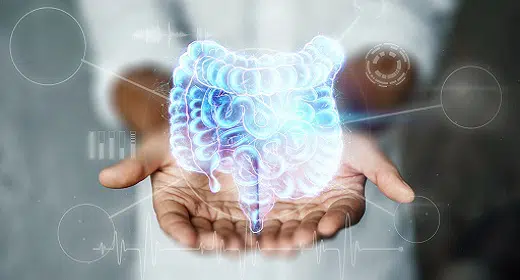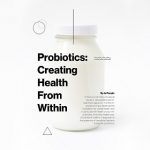by Ocean Robbins: In 1970, the unheralded Swedish band Festfolket (“Party People” in English) made their television debut on a strange variety show called “Five Minute Saloon”…
We are proud to announce a new partnership with John and Ocean Robbins and the Food Revolution to bring our readers Summits, Seminars and Masterclasses on health, nutrition and Earth-Conscious living.
Sign Up Today For the Healthy Heart Masterclass
The quartet — Agnetha Fältskog, Björn Ulvaeus, Benny Andersson, and Anni-Frid Lyngstad — sang a frankly cringe-worthy rendition of “California Here We Come” (you can watch it here) while decked out in ridiculous Western wear. The reviews were largely negative, for this performance and also for their stage show.
But they didn’t give up. A few years later, they got their big break by qualifying for and ultimately winning the 1974 Eurovision Song Contest.
Festfolket turned out to be a precursor to one of the most successful and popular musical acts in history: the band ABBA, an anagram constructed from the first letter of the four singers’ first names.
Which brings me to today’s topic, another powerful, four-letter entity derived from seemingly inconsequential precursors. I’m talking, of course, about TMAO, a compound our bodies make with raw ingredients that come from foods of animal origin. That’s where the similarity ends, though; TMAO is as worrisome and potentially hazardous as ABBA is fun and joyful.
A Newly Discovered Dietary Hazard: TMAO
Many studies tell us that people who eat a whole foods, plant-centered diet that is low in meat and other animal products tend to live longer, and have lower rates of most of the major chronic diseases of our times — including heart disease, type 2 diabetes, cancer, dementia, and obesity.
But why? Is it cholesterol? Saturated fat? The nature of animal protein? Is it because animal products deliver heme iron — and most people are already getting too much iron? Is it because animal products represent a missed opportunity to take advantage of the fiber, antioxidants, and other phytonutrients that are so abundant in whole plant foods?
In reality, it’s probably a combination of all of these things, in conjunction with other healthier lifestyle habits. But diet-wise, there’s now a new factor to consider, and it deserves a lot more attention than it’s been getting.
TMAO, or trimethylamine-N-oxide, is a toxic compound produced by human gut bacteria. Its production can have a major impact on the development of chronic disease and overall health. In fact, the effects of TMAO are so significant that it’s being used as a medical indicator to help predict risk for heart attack, stroke, and death.
But what exactly is TMAO? Why is it so bad for you? And what can you do to prevent it from forming in the first place?
What is TMAO?
Trimethylamine N-oxide (TMAO) is a metabolite that your body produces if you eat certain foods. Here’s how it works: when you consume foods rich in TMAO precursor compounds, the bacteria in your gut convert them into a molecule called trimethylamine (TMA). Your liver then grabs that TMA, does some fancy chemical stuff to it (apologies for that technical sidebar), and generates TMAO.
What Foods Form TMAO in Your Body?

The dietary precursors to TMA formation, which include L-carnitine and choline, as well as betaine and lecithin, are found almost exclusively in foods of animal origin. Red meat like beef, pork, eggs, and lamb, as well as salt-water fish, lead to the highest concentrations of TMAO in our bodies. Liver, dairy products, and shellfish are also TMAO producers.
L-carnitine supplements can also increase TMAO levels in the body. One 2015 study found that when 31 patients on hemodialysis received L-carnitine supplements, it was changed to trimethylamine (TMA) by their intestinal microbiota, and then further metabolized to TMAO.
Why Is TMAO Bad for Your Health?
Researchers are discovering more and more associations between TMAO levels and the development of multiple inflammatory conditions. These include heart disease, type 2 diabetes, chronic kidney disease, cancer, and liver disease.

Heart Disease
We’ve known about the connection between TMAO and heart disease for a while. People with higher levels of TMAO in their blood may have more than double the risk of heart attack, stroke, or other serious cardiovascular problems, compared with people who have lower levels.
The nutritional world was rocked in 2013 by a study in which researchers found that intestinal bacteria metabolize L-carnitine from foods like red meat and turn it into TMAO, promoting atherosclerosis. They also found that omnivores produce significantly more TMAO than vegans and vegetarians do after consuming L-carnitine.
Why would vegans and meat-eaters differ in how much TMAO they make in response to the exact same food or supplement? Because what you eat determines the makeup of your gut microbiome. If you eat meat on a regular basis, you’ve likely got a gut full of bacteria that turn TMAO precursors into TMAO. If you’re a vegan, you lack those bacteria because they can’t survive on your diet.
A 2017 multi-center study examined TMAO levels of 530 adults who went to the ER for chest pain. The data showed that the patients who had the highest TMAO levels when they arrived at the hospital were approximately six times more likely to die, have a heart attack or stroke, or need surgery on blood vessels within the next month. They were also six times more likely to die or have a heart attack within the next six months, and were twice as likely to die during the seven years of follow-up compared to the patients who presented with the lowest TMAO levels on admission.
A 2019 study found that higher TMAO levels were associated with worsened severity of peripheral artery disease (PAD) — a condition which puts people at higher risk for heart attack, stroke, and related death compared to people who don’t have the disease — and a higher risk of death from heart disease.
TMAO has also been shown to directly cause atherosclerosis, the harmful buildup of plaque in your arteries. Having higher plasma TMAO levels predicts major adverse cardiovascular events, like heart attack, stroke, and death. And TMAO appears to promote immune and inflammatory responses in the body that facilitate atherosclerosis and other heart problems.
In a 2020 meta-analysis published in BMC Cardiovascular Disorders, researchers examined data from seven papers, with data from nine cohort studies involving a total of 10,301 patients. They concluded that elevated plasma TMAO levels increased the risk of major adverse cardiovascular events among patients with heart disease by 58%.
Type 2 Diabetes
High TMAO levels may also interfere with blood sugar control, even to the point of increasing the risk of developing type 2 diabetes.
A 2017 study published in the American Journal of Clinical Nutrition — involving 1,346 newly diagnosed cases of type 2 diabetes and 1,348 controls — found a positive association between plasma levels of TMAO and type 2 diabetes.
This link was also found in a 2016 study, in which the authors concluded that high TMAO levels are associated with diabetes.
Another study published in 2014 examined the effects of TMAO on glucose tolerance among mice fed a high-fat diet. Based on their findings, the authors concluded that dietary TMAO worsens already-impaired glucose tolerance, interrupts signaling pathways in the liver, and promotes inflammation in fatty tissues among mice fed a high-fat diet. (Our view on the use of animals in medical research is here.)
Chronic Kidney Disease
Chronic kidney disease (CKD), or chronic kidney failure, is a condition that involves the worsening of kidney function, eventually resulting in the failure of one or both kidneys. The presence of TMAO in the body may play a role in health outcomes of CKD.
One 2015 study found that CKD patients had higher concentrations of TMAO than controls without CKD. Furthermore, higher levels of circulating TMAO were associated with a worsened CKD prognosis and poorer long-term survival.
A 2016 study involving 80 controls and 179 patients with stage 3-5 CKD concluded that higher TMAO levels were associated with a higher risk for mortality.
Cancer
How much TMAO is circulating in your blood may also influence your risk for certain types of cancers.
For instance, a 2014 study found a positive correlation between higher TMAO levels and risk for colorectal cancer. The association of the two is so significant that a 2017 study called TMAO “a new prognostic marker for colorectal cancer.” The researchers found that median TMAO levels were significantly higher in patients with cancer than in the healthy controls. Plus, those who had high TMAO levels had significantly shorter disease-free survival (a measure of how long patients survive after treatment that completely eliminates symptoms, but may not “cure” the disease) compared to patients with low levels of TMAO.
But it isn’t just colorectal cancer that appears to be impacted by TMAO. A 2015 study found that excessive TMAO was related to a higher risk for aggressive forms of prostate cancer. And a 2018 study found that high blood levels of TMAO were associated with increased risk for primary liver cancer.
Why? A 2021 literature review concluded that TMAO may promote inflammation, oxidative stress, and DNA damage — all of which could contribute to cancer mortality.
Liver Disease
Non-alcoholic fatty liver disease (NAFLD) is the presence of excessive fat buildup in the liver without alcohol abuse or another obvious cause. NAFLD is becoming increasingly prevalent around the world, and TMAO appears to influence how bad NAFLD can become.
A 2019 study published in the journal Molecular Nutrition & Food Research concluded that high levels of TMAO worsen NAFLD by interrupting signaling pathways in the liver that manage bile acid metabolism.
Plus, the authors of a 2021 cohort study called PREVEND (Prevention of Renal and Vascular End-stage Disease), in which 6,415 participants were followed for a median of 8.2 years, concluded that plasma concentrations of TMAO were independently associated with all-cause mortality in people with NAFLD.
TMAO Testing

In humans, blood levels of TMAO stem from a number of factors, including diet, gut microbial flora, and liver metabolism activity. But how do you know if the amount of TMAO in your body is problematic? A TMAO test may be done in an emergency room setting to confirm a cardiac event if someone arrives with chest pain or other concerning symptoms. It may also be ordered to determine risk of heart disease or stroke. Use of the TMAO test often occurs for more accurate risk prediction of a major cardiac event in patients undergoing elective coronary angiography and patients with acute coronary syndromes.
Clinical data also supports using TMAO testing to get a clearer idea of the risk for all-cause mortality in patients with peripheral artery disease, heart failure, chronic kidney disease, and after a myocardial infarction.
To undergo the TMAO blood test, patients fast overnight and refrain from eating fish or other seafood — including fish oil or krill oil supplements — the day before the blood draw to avoid false elevations in TMAO.
After a blood draw, TMAO levels are assessed in micrometers (μM). A reading of less than 6.2 μM indicates low risk of a major cardiac event, and the higher that number, the greater the risk.
How Can You Reduce TMAO Levels in Your Body?
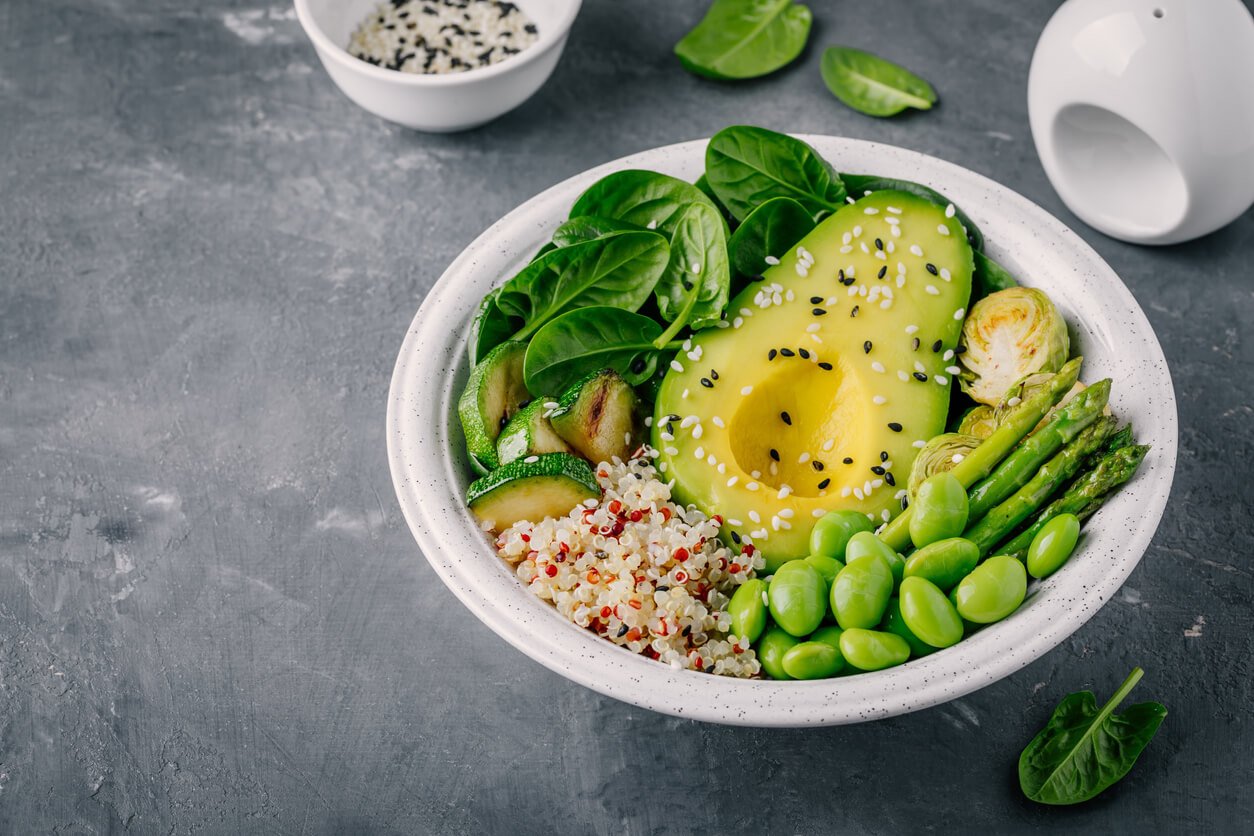
Minimizing foods that are very high in choline, L-carnitine, and other TMAO precursor compounds is the most effective way to reduce TMAO levels. And the easiest way to do that is to avoid the foods they come from — swapping animal-based foods for whole foods, plant-based ones.
A 2021 study published in The Journal of Nutrition asked the question, “What happens to TMAO levels when we put meat-eaters on a vegan diet?” Researchers asked 23 regular meat-eaters, all of whom were obese or had markers for diabetes, to eliminate all animal products for eight weeks, after which they could eat an unrestricted diet for the next four weeks. Their plasma TMAO was measured at baseline, and again at weeks one, eight, and 12.
The average TMAO in the study participants was over 10 μmol/L when they started the study, which put them in the highest risk category. Just one week later, a vegan diet had cut that number almost in half, to 5.7. Just like that, the participants were in the lowest risk category. Their TMAO levels remained fairly constant after eight weeks on the vegan diet. At week 12, however, following 28 days of rebound eating that included animal products, their TMAO levels had also rebounded, averaging a whopping 17.5 μmol/L.
In a 2020 randomized controlled trial called SWAP-MEAT, which is a stunningly punny title for a nutrition study, researchers found that when people swapped out animal products for plant-based alternatives, their risk factors for heart disease improved — including their TMAO levels.
Plant-based diets have also been proven effective for reducing gut-derived TMAO production among patients with chronic kidney disease. This is especially important because individuals with kidney disease are already at a higher risk of developing heart disease.
Carnitine
So, what can you do with your diet to help reduce your production of TMAO? First, you can reduce your direct carnitine consumption. Carnitine, which comes from the same root as the word “carnivore,” is, not surprisingly, highest in red meat. A four-ounce beef steak can have between 56 mg to 162 mg of carnitine.
Since carnitine is made in the body from the essential amino acids lysine and methionine, when you consume foods high in these amino acids (which are in plant-based foods such as legumes, quinoa, nuts, and seeds), your body can produce all the carnitine that it needs without having to get it directly from foods like meat and dairy. This is also why there’s no Recommended Daily Allowance (RDA) for carnitine.
Choline
Choline is also strongly linked to TMAO production. The key, however, is to get the right amount (and not too much). The highest dietary sources of choline are meat, fish, dairy, and eggs. More modest amounts of choline appear to meet human needs without causing excessive TMAO production and can come from eating fruits, vegetables, beans, nuts, and soy foods.
And it turns out that plant-based sources of choline might have a different impact in the body than those that come from animals. In a remarkable 2004 study published in the Journal of the American Dietetic Association, researchers had people eat two cups a day of the vegetable highest in choline — Brussels sprouts — for three weeks. At the end of the study, the participants’ TMAO levels decreased from baseline. The researchers concluded that perhaps Brussels sprouts naturally downregulate the liver enzyme that converts TMA to TMAO, enough to effectively drop levels in your body.
To minimize the TMAO your body produces, the single most powerful strategy is to eat a whole foods plant-based diet, free from animal products. Because it turns out that people who normally eat a totally plant-based diet may not make any TMAO at all — even if they deliberately try to make them by, say, eating a beef steak that’s high in both carnitine and choline.
Why is that? The makeup of a vegan gut microbiome contains very different bacterial communities than an omnivore’s. If red meat isn’t regularly consumed, the gut doesn’t contain any bacteria that act on red meat to promote the creation of TMAO.
A plant-based diet can protect you from the formation of TMAOs to such an extent that even if you do eat the occasional hamburger, your TMAO levels likely will not rise.
Editor’s note: Want some practical help to put a plant-based lifestyle into action in your life? Join two-million-copy bestselling author John Robbins in the totally free Food For Health Masterclass. Claim your complimentary spot here.
Anti-TMAO Recipes
Swapping some (or all!) animal-based protein for plant-based protein can be delicious and satisfying to your taste buds when you have simple and flavorful recipes to follow, like the ones below.
Easy Tofu Breakfast Muffins replace eggs and create an easy-to-make savory breakfast that can also substitute as a protein-packed grab-and-go snack. Ditching dairy has never been easier since the discovery of plant-based ingredients’ ability to turn into umami, creamy goodness. Cashew Mozzarella Cheese is similar to dairy in that it tastes incredible and delivers creaminess, but it’s different in that it’s good for you! You can also create a satisfying plant burger to replace a red meat burger — using lentils, flax meal, and lots of flavorful spices with the Hearty and Healing Lentil Burgers. As you ditch animal protein, you’ll ditch the TMAO-generating compounds. Plus, by adding high-fiber plant-based ingredients, you’ll build a healthy microbiome that protects against excess TMAO.
1. Easy Tofu Breakfast Muffins
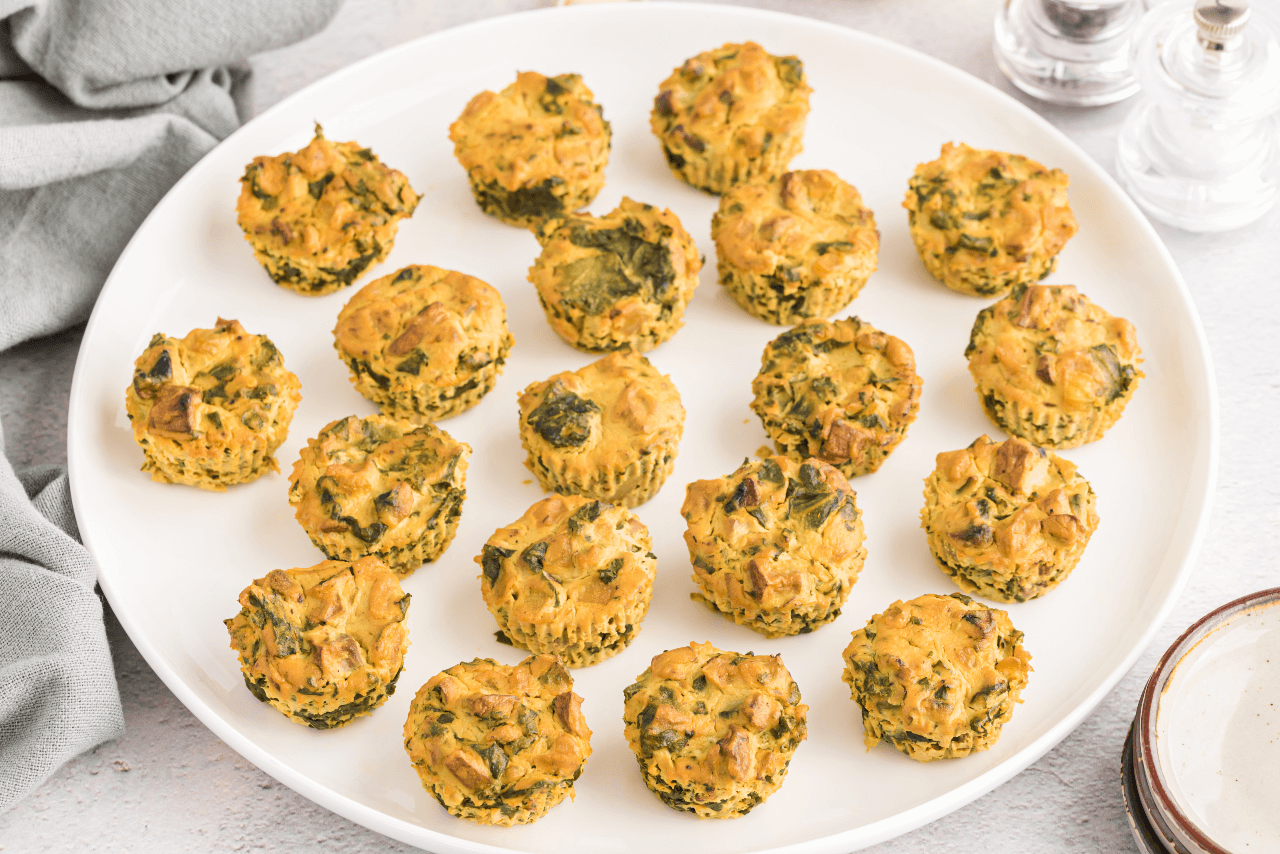
Swap eggs for tofu in these easy-to-prepare, savory breakfast muffins that you can make ahead of time for an “I’m running late” breakfast (it happens to the best of us) — or to enjoy as soon as they come out of the oven. Not only are you replacing choline-rich eggs derived from an animal, but you’re replacing them with heart-healthy, fiber-rich ingredients like onions, mushrooms, and kale that help to feed healthy gut bacteria. Add a little ground turmeric on top of all that, and you have yourself an anti-inflammatory, powerhouse breakfast!
2. Cashew Mozzarella Cheese
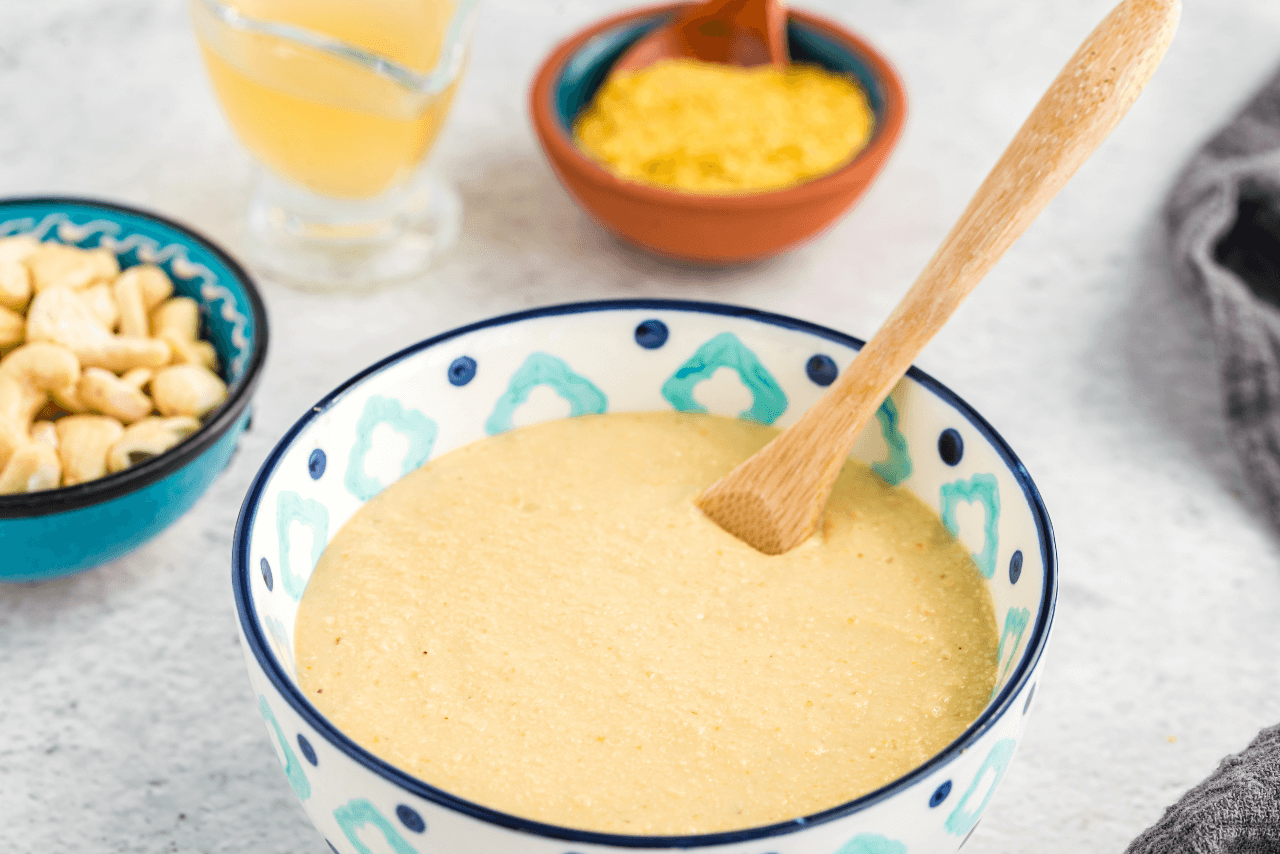
Ditch choline-packed dairy cheese for this plant-based cashew version that delivers creamy texture, umami flavor, and tons of nutrition. Use it as a plant-based pizza topping, whole grain pasta sauce, or steamed veggie dip — you won’t feel like you’re missing out one bit!
3. Hearty and Healing Lentil Burgers
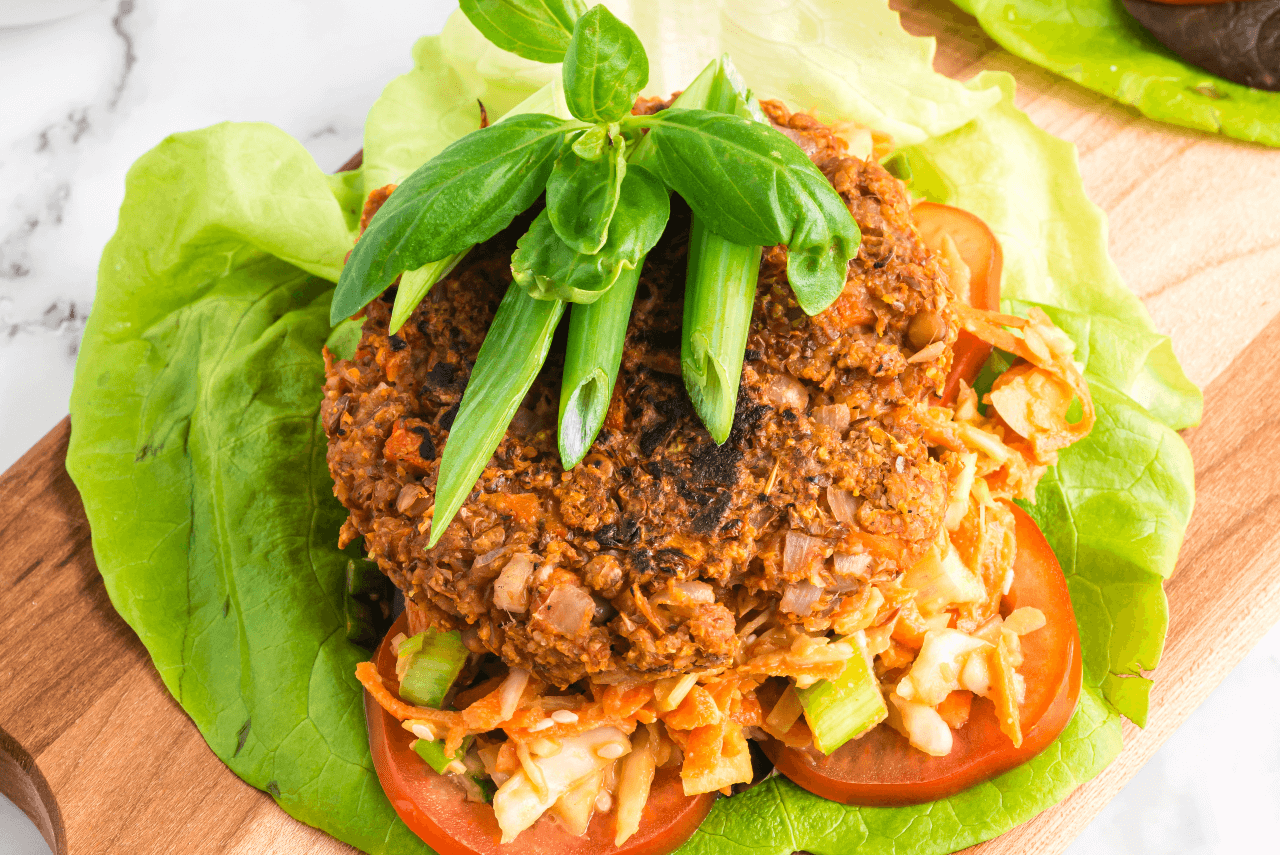
Red meat is the biggest culprit when it comes to TMAO production due to its high content of both choline and carnitine. Swapping red meat with a hearty lentil or bean burger can create a big — by that, we mean positive — impact on your health. These burgers are hearty, tasty, and hold together well for outdoor grilling. Layer them with all of your favorite toppings for a delicious and satisfying meal.
A Plant-Based Defense Against TMAO
TMAO has been implicated as a marker in cardiovascular disease and a number of other inflammatory chronic diseases. It’s a toxic compound produced by gut microbiota from eating foods high in choline and carnitine, as well as betaine and lecithin, which are primarily animal products like red meat. But the good news is that you can reduce your levels, and prevent TMAO from forming in the first place, by adopting a whole foods, plant-based diet that changes your gut microbiome for the better. Eating this way also has the benefit of reducing your risk of all-cause mortality and the development and progression of heart disease, chronic kidney disease, type 2 diabetes, cancer, and liver disease.







